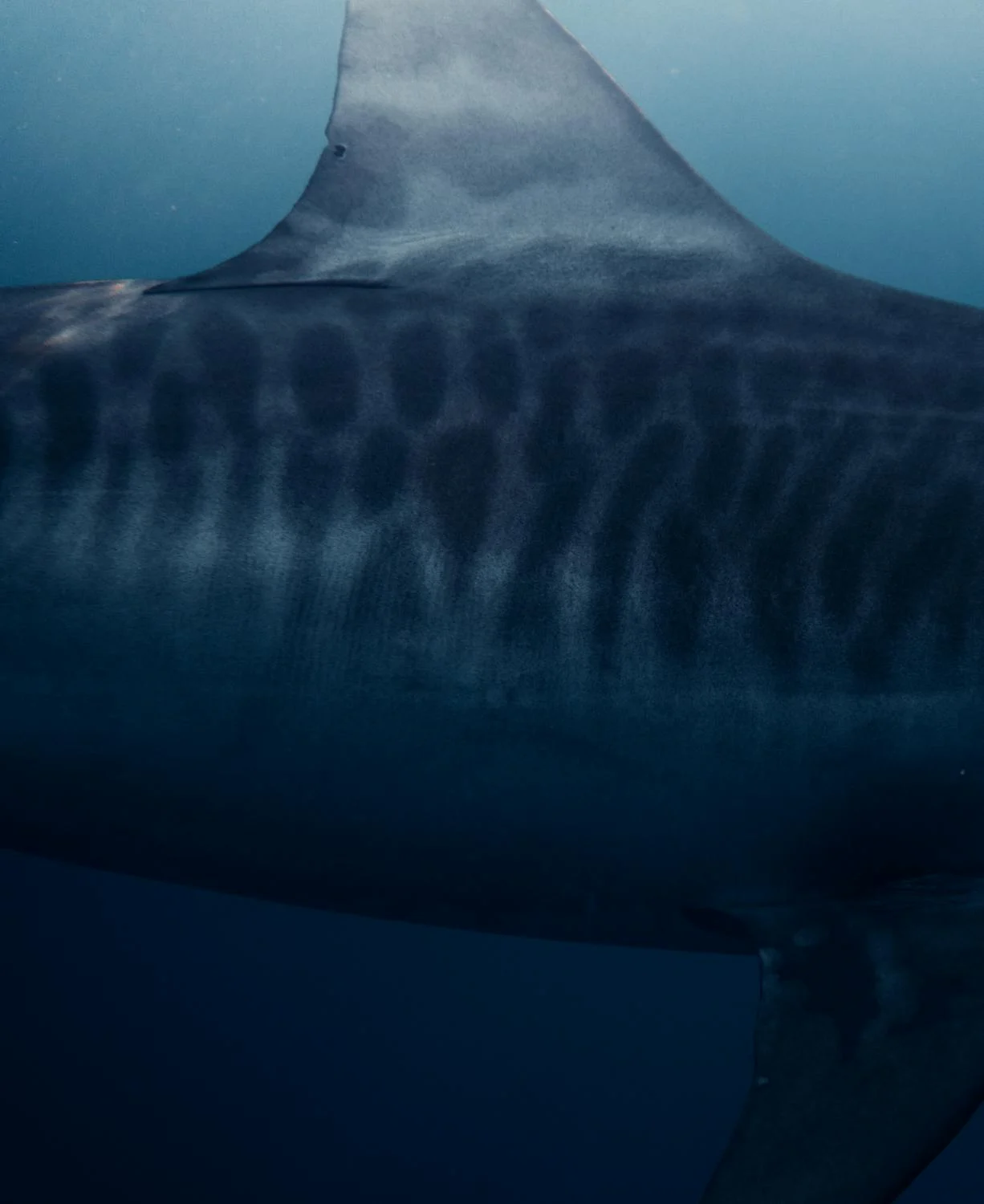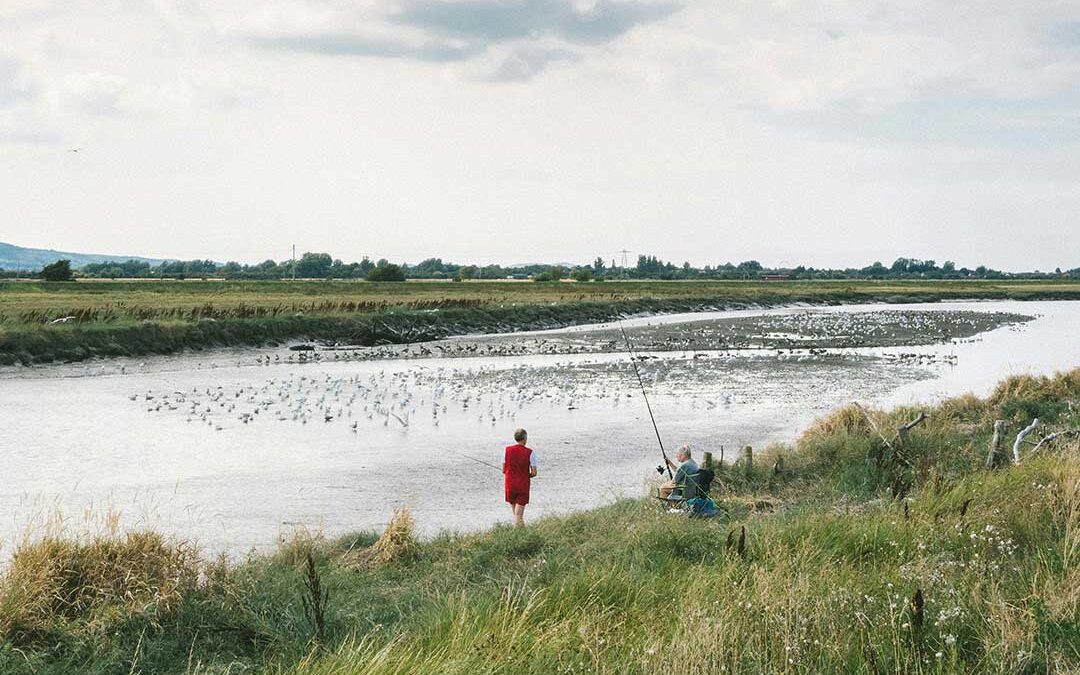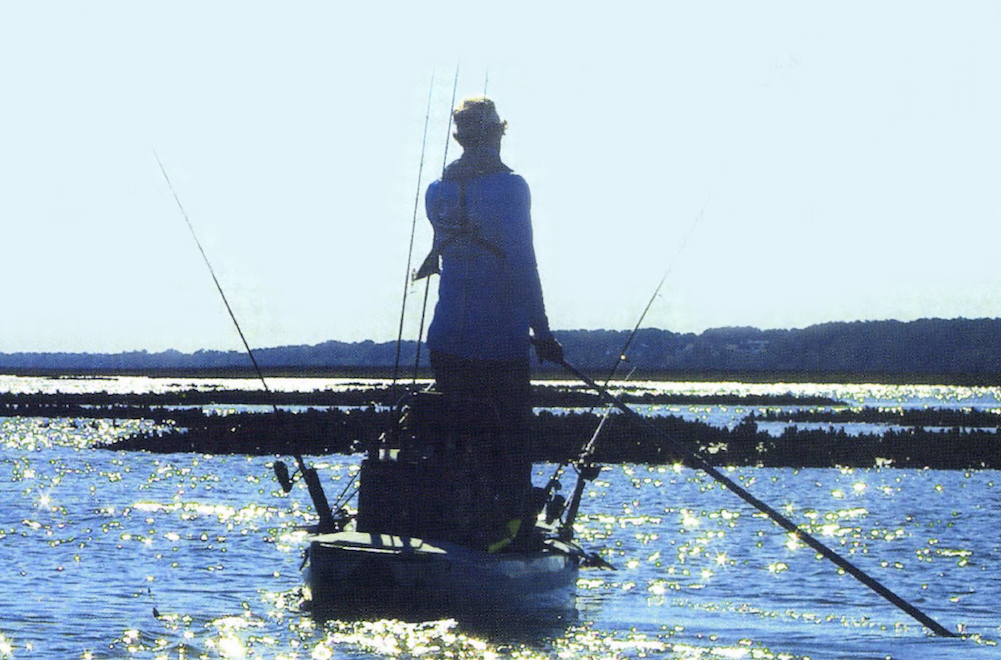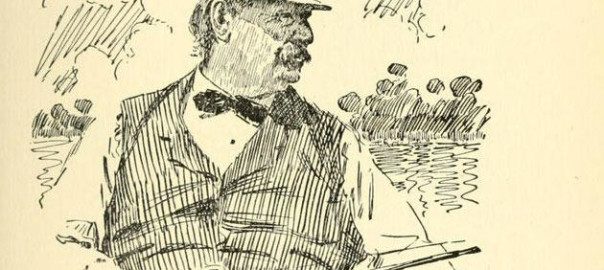One of the most popular forms of fishing along the Southern coast is the taking of mullets at night, either with a cast-net or with a gill-seine. They cannot be taken with a hook and line and only rarely can they be caught in the daytime with a net.
One day in August, my brother Tom and I, on our return home from a trip after school — bass fishing on the marshes — ran into a big school of mullets near the mouth of Tiger Creek, a deep estuary that withdraws from the main channel and winds a sinuous way up into the marsh-fields. We could do nothing with the mullets then, but we reasoned that they might be there on the next flood, which would be about midnight and we decided to try for them with the gill-seine.
At eleven o’clock we left the glimmering shell wharf and dropped silently down on the late ebb.
We had a 10-foot cypress bateau, light but steady and capable of carrying a good load. Tom rowed, and I well remember that the star-light and the silent ranks of green cedars on the shore and the strange noises in the marshes made us feel very adventurous.

A pull of half an hour down the channel brought us to Tiger Creek, the surface of which glittered frostily in the starlight with the myriads of small fish that were playing on it. By this time the young flood was beginning to creep in; so, running the boat up under the lee shore, we waited there and listened with pleasurable assurance to the telltale thudding of the water — a certain sign of mullets. As we had expected, they were going into Tiger Creek; we had only to wait until they got well up the stream before stopping the mouth with the seine.
When it was evident that the school had passed us, we rowed quietly up the creek for a little distance. Then, while my brother pulled slowly, I staked one end of the seine and paid out the length over the stern. The creek was 40 feet wide, and our net only 30; so we staked the boat at the short end, which made an apparent, although not a perfect, shut-off.
As I was the younger, it usually fell to me to run the fish down, while Tom tended the net; but this time he asked me, much to my delight, if I would not like to take the fish out when they struck the net. Making me promise not to let the big ones get away, he splashed off through the marsh with an oar over his shoulder.
Having made the boat fast between the seine and the shore, I let myself down into the warm, sparkling water and began to feel my way out along the seine. I wanted to make sure that the corks were all floating right-side up, and that the lead-line was set true. The water was not so deep as I thought it would be, for it came only a little above my waist by the boat and at the middle of the net; but the bottom was very soft and sticky, so that several times I had to take hold of the seine to pull my feet out of the mud. Consequently, I did not venture so far as the narrow channel that ran close to the shore at the other end of the net. There, I knew, the water was deeper. I found the net hanging right; and as it was a new one, with no holes and no weak plates, I felt sure that we would make a large catch.
Before long I heard Tom begin to shout, and then came the sound of his oar spanking the water near the head of the creek. Soon I heard mullets jumping; then the water about me began to murmur, and a big fish struck the seine and gilled himself. The corks bobbed and the water foamed, while I waded toward the fish, took him out and threw him into the boat. Before I could turn, several had gilled themselves and one had jumped into our bateau. The hurrying fish, fleeing for open water, bumped against me. They rushed here and there, huddled against the seine, jumped over it, gilled themselves or buried themselves in the mud beneath it.
I was so busy and so eager to reach a certain fish that was making a great froth near the middle of the seine that I did not at first notice the decided lull in the general noise, and anyway, my ears were pretty well engaged with Tom’s shouting and his pounding with the oar. But I soon realized that something unusual in the water had frightened the mullets even more than our seine. Yet, well as I knew the salt creeks and the real dangers that lurk there, I did not move from the spot where, with my feet bogged in the sucking mud, I was feeling out along the seine and lifting it here and there to take out the fish that had gilled themselves.
I was holding the seine up with my right hand, and my left hand was hanging by my side in the water, when I suddenly felt a big wave rise to my shoulder and in front of it, moving sluggishly past me along the downstream side of the seine, I saw the fin of a great shark. He had come in with the flood and was prowling about for a kill.
Of all the creatures that infest salt waters, none are more sinister than the sharks, especially the hammerheads and the tigers. Moving like shadowy specters just beneath the surface, they appear suddenly, seize their prey and rending it with their needle-like teeth, dart away to devour it. They are crafty in their movements, usually cowardly about noises, sinister in their silent and deadly approach.

The hammerheads never grow very large in those waters, but the gray, racing body of the tiger can be as long as 12 feet. The shark that was now so near me was — as I guessed from the height of his fin and the size of the wave it carried — 10 feet long.
Just now, he had turned away from the seine and was making a semicircle in the creek. It is said that when a shark begins to circle on the surface, with his fin cutting the water faster and faster as he turns, it is time to look for trouble. That is exactly what I saw there on the surface of that placid creek, and I believed I knew what it meant. He had wind of me and was circling to find and close in on me. There was something fascinating about his bloodhound tactics; sometimes he would stop as if listening, or as if thinking the puzzle out in his crafty mind; then he would move deliberately off with insolent assurance.
At first, I was merely surprised that such a big shark should be near Tiger Creek, and provoked that he should have spoiled our seining, for there was now no sight or sound of a fish anywhere. But when I saw the alertness of the creature, the terrible intensity in that rigid fin, that sweeping hither and thither of the lithe body, my feelings changed: I wanted to get out of his way as quickly as I could. There was nothing between us but open water, for I was on the outside of the seine.
Having stood so long in one place, my feet had gradually become set in the heavy mud, so that when I tried to move toward the boat I could not take a step. Hitherto, with the help of the seine, I had pulled myself along; but now, although I tugged vehemently, the only result was the giving of the stake on the farther shore. I could not budge an inch. I think the rapidly rising tide, now well up toward my shoulders, kept me from getting the proper leverage with my knees. At any rate, I was as fast to the bottom as if I had been tied.
Meanwhile, Tom, eager to get down to the seine, where he imagined I was having great sport, had ceased his shouting and beating. He was still a good way off, and I could hear him tramping along through the crackling marsh. I struggled with the dull trap that had locked its soft jaws on my feet, but I only made my knees ache with the strain and apparently sank myself deeper into the water.
The shark had now come up to the end of the seine next to the boat. He stopped for a moment by it, evidently puzzled. But I felt certain that his next turn would be toward me. With that, losing my nerve, I shouted for Tom and heard him answer me. He was having a tussle of his own trying to cross a boggy inlet that the incoming tide had filled; evidently, he thought I was calling him to hurry so as to help take the mullets out of the net.
When I heard him floundering in that mud hole, I gave up the idea that he could help me out of my difficulty. Perhaps it was better so; for when I felt entirely thrown on my own resources, when I knew that, single-handed, I must try conclusions with the huge creature that was hunting me, I knew that I must act; and act at once. Weapon of any kind I had none. I was alone and defenseless, in water almost up to my neck and a 10-foot shark was within two boat-lengths of me, looking for me. For the first time since I had been fishing in those waters I was unnerved.
But my thinking was clear enough until I saw the big creature turn slowly away from the boat and come toward me through the dark water. Then I lost my head. I cried out wildly for Tom. I beat the water with my hands and screamed at the shark. But he came steadily on. His deliberation was more terrible than his swiftness would have been. I felt that he saw me standing there helpless. He was coming straight toward me now, with no sign of uncertainty in his movements. I saw his fin rise higher out of the water, as if he were summoning all his savage strength for the final rush and I grew sick at his brutal assurance.
He was only 10 feet away now. Whatever fate was in store for me would, I thought, be immediate. Every chance of escape seemed cut off. Yet even in that dark moment an inspiration seized me. Catching the seine violently, I lifted it as high as I could, ducked through the water under it, rose on the other side and dropped the net into place. I had put a defense between me and my pursuer!
But how frail was that defense against the giant strength of the ruthless, cold-blooded creature! Yet for a moment it separated me from his terrible jaws. Now I felt slightly protected, but I could not move from my position, for my feet were still firmly embedded. The shark had already rushed by and, baffled and perplexed, was circling swiftly. But now again he saw me and came head on for the seine. I knew that it would not withstand his great weight and dreadful momentum. On he came, literally charging me. But before he struck the net he swerved, so that he did not break through, but turned swiftly along it.
My fascinated eyes followed him. He swam up to the end of the net next to the boat. With the flow of the flood, the boat had swung on her moorings. It now lay up the creek, and thus left a clear gap of 10 feet, through which the shark, suddenly accelerating his speed, spurted fiercely. He was on me now; there was nothing between us. One wide circle in the creek would give him his bearings — then he would rush on his prey.
But with the coming of my enemy, my brother Tom also approached. I had forgotten him in my delirious fear. Now I shouted to him at the top of my voice, crying wildly, “Shark! Shark! Help me, or he’ll get me!”
I saw him pause; then, catching my words, he broke into a full run. Leaping into the boat, he jerked the painter loose and shoved out rapidly. Straight as a well-sped arrow the great gray shark raced down upon me. I steeled myself for the sickening shock. But Tom’s powerful hands gripped my arms, and he lifted me into the boat. There flashed by the stern the tall knife-fin of the tiger, and the huge creature tore his terrible way through the net as if it had been a cobweb.




